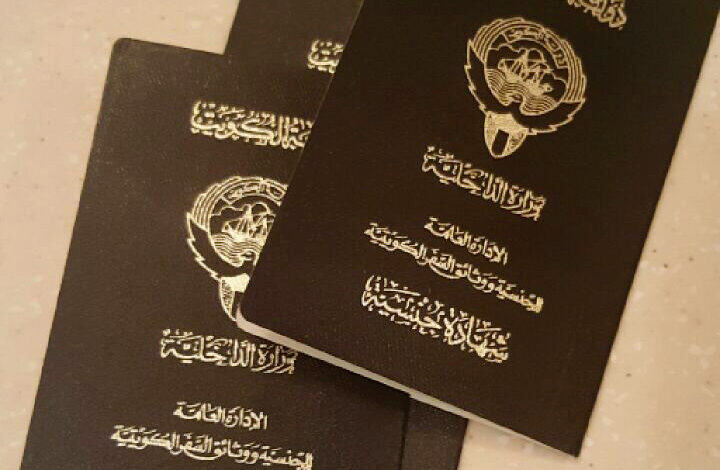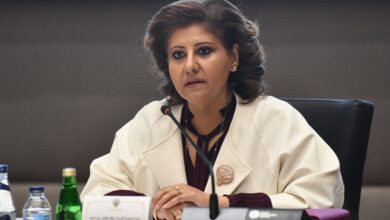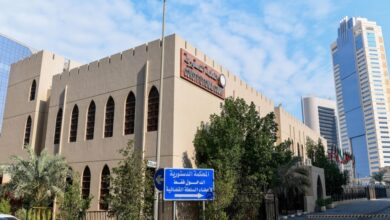Nationality Law Ensures Kuwait Remains Kuwaiti

By Reaven D’Souza
Executive Managing Editor
Since becoming the 111th member of the United Nations in 1963, Kuwait has been an active and reliable partner of the world body in promoting peace and supporting development efforts worldwide, as well as in delivering humanitarian assistance to people in need everywhere. Over the years, the country has also positioned itself as a dynamic regional and global player in advocating for the UN goals of universal adherence to human rights and freedoms for all without distinction.
Through visionary leadership, an ambitious Vision 2035 development plan, and through implementation of various United Nations conventions, treaties, and principles based on the UN Charter and Universal Declaration of Human Rights, Kuwait is working towards creating a peaceful, inclusive, equitable, and sustainable society that fosters the well-being and interests of its citizens, and ensures continued prosperity of the nation.
Kuwait’s efforts to build an encompassing, equitable society has drawn praise from various quarters, including from the United Nations Office of the High Commissioner for Human Rights (UN Human Rights). During discussion on the Sixth Periodic Report of Kuwait last year, the UN Human Rights’ Expert Committee on Elimination of Discrimination Against Women, praised the country for its initiatives in eliminating gender inequality and for empowering women.
However, the Committee also voiced concern on the plight of more than 20,000 Kuwaiti women who were married to foreigners, whose children did not enjoy citizenship rights. Responding to this concern, the Kuwaiti delegation headed by the Permanent Representative of Kuwait to the United Nations Office in Geneva, Nasser AlHayen, stated that there were no different procedures for Kuwaiti men and women when it came to nationality and naturalisation.
Explaining that the main criteria for deciding nationality according to Kuwaiti law is that it is transferred only from fathers, AlHayen said that children of Kuwaiti women from a foreign husband would keep their father’s nationality. Relatedly, he added that foreign wives of Kuwaiti men were not entitled to citizenship under Kuwait’s Nationality Law.
In the same vein, in response to comments by a Committee member that more than 92,000 stateless persons faced discrimination in Kuwait, AlHayen stated that the people who had entered Kuwait surreptitiously to gain citizenship were not considered stateless persons.
He added that, despite their illegal status, the government had taken several measures to ameliorate their situation, including by creating a specialized agency to specifically address their issues. Kuwait’s principled stance on the nationality issue was reiterated recently by the First Deputy Prime Minister and Minister of Interior, Sheikh Fahad Yousef Saud Al-Sabah.
Speaking on the first episode of the ‘Masrah Al-Hayat’ program, broadcast on Al-Rai TV, Sheikh Fahad Al-Yousef stressed that the ongoing nationality review was prompted by concerns that Kuwaiti nationality was being ‘hijacked’ by foreign nationals.
Pointing out that fraudulent activities, including forgery, political influence, connections, and cash payments, were employed to integrate foreign nationals into Kuwaiti society, the minister said that this had led to foreigners, unfamiliar with Kuwaiti society in terms of social life, language, culture, and social relations, becoming part of society.
The minister stressed that without the ongoing intervention, the demographic makeup of Kuwait would have shifted, not just in terms of citizenship, but in its Kuwaiti nature, which has been maintained since the 1920s and 1930s when Kuwait was solely for its people. He added that attempts to amend the Nationality Law over the past 40 years were repeatedly blocked by legislators in the National Assembly.
Noting that the Supreme Committee for Nationality Investigation, chaired by him, has been assigned the responsibility of correcting flaws in the Nationality Law, Sheikh Fahad Al-Yousef emphasized that he was committed to handling this issue “with integrity and sincerity, being accountable before God, His Highness the Amir, and the Kuwaiti people who are the true sons of this land”.
Discussing recent amendments to the Nationality Law, Sheikh Fahad Al-Yousef said that several articles were canceled or amended, including Article 8, which previously allowed the wife of a Kuwaiti man to acquire citizenship. “About three months ago, the law was revised, and now, a Kuwaiti man can no longer marry a foreign woman and later naturalize her,” said the minister.
With regard to Article 5, which applied to the children of Kuwaiti women married to a foreigner, the minister said that although the mother is Kuwaiti, the children of a foreign father are not eligible for citizenship under the Nationality Law. He explained that under the new Foreign Residency Law, children of Kuwaiti women who lose citizenship if their father’s citizenship is revoked, will be granted a 10-year residency, which can be renewed.
The interior minister also stressed that the previous practice of granting Kuwaiti citizenship based on ‘noble deeds’ has effectively ended. Pointing out that earlier Kuwait had granted citizenship to people for their noble deeds, the minister said, but these were people who helped to build the country’s healthcare, education and other sectors without expectation of any personal gains.
Saying that these were true noble deeds worthy of citizenship, he expressed skepticism about more recent claims of noble deeds. He asked, “If someone has only worked in Kuwait for a few years for a salary in the private sector, what have they really done for Kuwait to deserve citizenship? The minister was forthright about his belief that money, political influence, and connections were behind granting citizenship to most of these people for their so-called noble deeds,
“All the people granted citizenship based on noble deeds were individuals with existing citizenships elsewhere. Many also paid sums of money to obtain Kuwaiti citizenship, using influence to transform their status,” said the minister. He also disclosed that discussions were ongoing with various countries from where people, whose Kuwaiti citizenship were recently revoked, originally came.
He added that during his visits to various countries, he had inquired about the possibility of restoring citizenship to individuals whose Kuwaiti citizenship were revoked, if they could prove their original nationality. “This matter is complex as Kuwaitis have ties to nearly every country around the world through marriages,” said the minister.
One of the more troubling discoveries during these discussions, said Sheikh Fahad Al-Yousef, was the extent of fraudulent activities involved in some nationality cases. Referring to instances of individuals manipulating their nationality status for personal gain, he said, “We found that some individuals had forged the citizenship of their home country in order to make it easier to obtain Kuwaiti citizenship.”
He added that In an effort to streamline and increase transparency in the citizenship process, the government plans to create an independent Nationality Authority for Citizenship. “This authority, which is still being designed in consultation with the Fatwa and Legislation Department, will be an independent entity with significant powers,” said the minister.
With more 35,000 cases being investigated so far, Sheikh Fahad Al-Yousef emphasized that no one is exempt from accountability. Pointing out that the law applies equally to everyone, the minister noted that many people, who previously held the highest positions such as former ministers, judges, parliamentarians,and directors, are currently imprisoned for their involvement in fraudulent nationality activities.
The Interior Minister concluded by underlining the enormity of the situation, “Before the Iraqi invasion, Kuwait’s population was just numbers, but after liberation, it grew significantly due to the ease of obtaining citizenship in exchange for money.This led to an increase in population, from around 600,000 Kuwaitis before invasion to over 1.5 million today. While population growth is natural, this surge was abnormal, but God willing, it will soon return to its normal state.”












